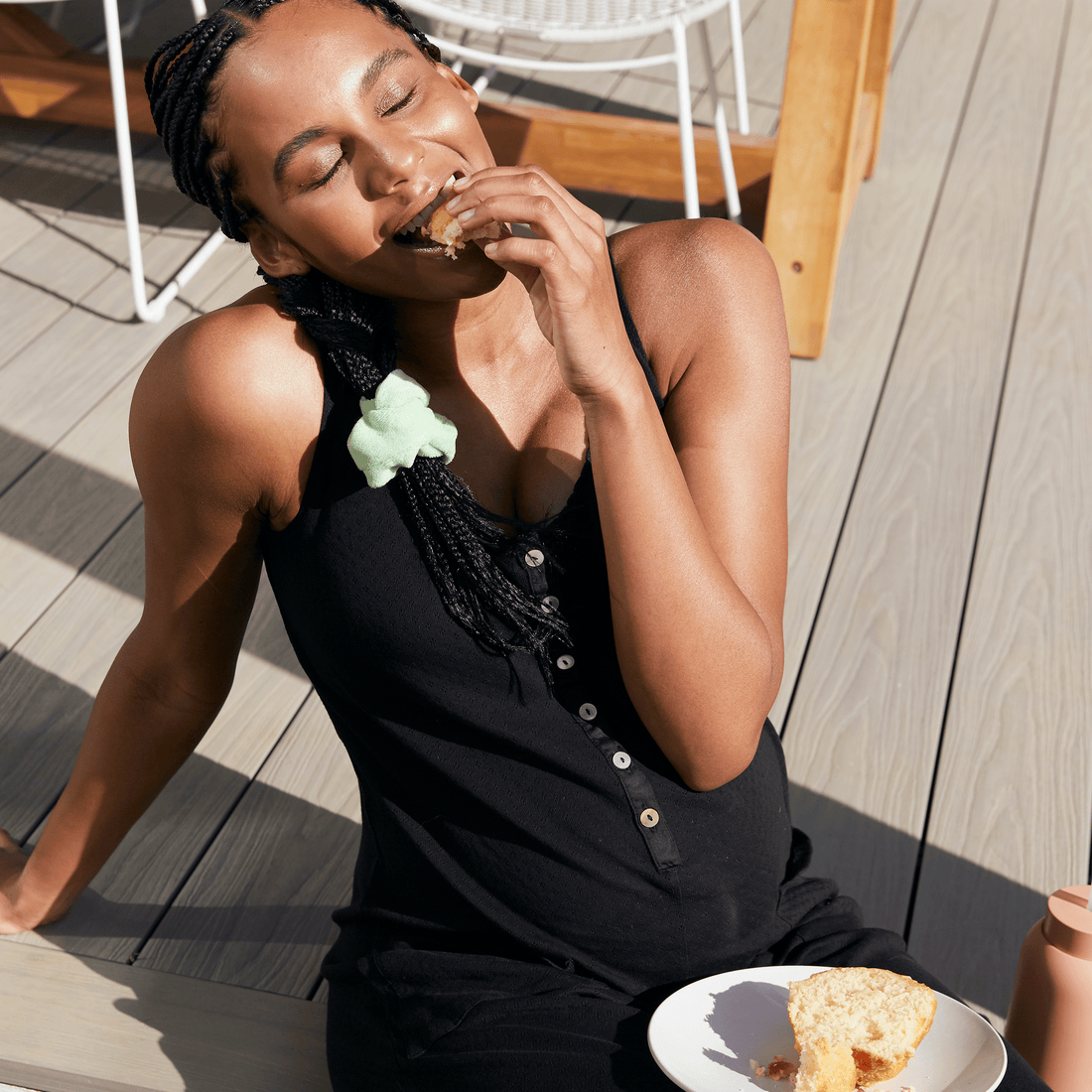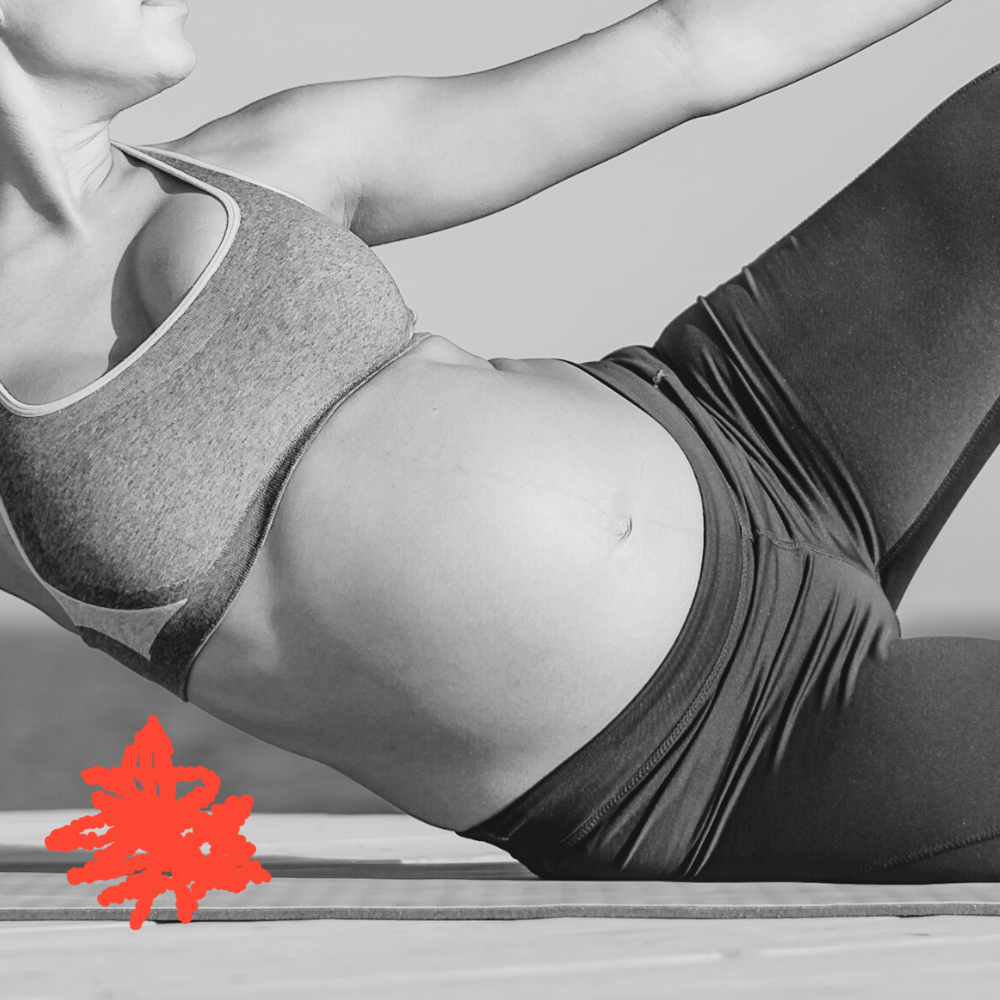We all know there are a lot of moving parts when it comes to conception and pregnancy, and that the path is rarely a straight line. But, while many factors are out of our control, and the research in this area is still very much emerging, there are some things that can aid in a smoother conception journey in a meaningful and positive way. We’re talking about health, wellbeing and, importantly, exercise.Your health in this period (known as periconception) is actually an important part of the whole pregnancy picture. As one study showed, the opposite (poor maternal health, fitness and diet) could be linked to things like impaired growth and metabolic conditions.
Alongside pre-conception supplements, a balanced diet and lowering stress levels, exercise can help set you up for your pregnancy journey, where your body undergoes not only extreme changes, but heightened stress as things stretch and move to accommodate a growing belly. Adding to this, as any new-mum can attest, post-birth is not the time to be starting (and sticking to) new exercise resolutions since you can barely remember to feed yourself, so if we establish these good habits now they’ll be ingrained in our routines hopefully forever.
We spoke to Jen Dugard, Founder of MumSafe, a website dedicated to finding an exercise solution for every stage of motherhood, to find out exactly what we can all be doing to get our bodies prepped for pregnancy.
Exercise and Pre-Conception
While there is no magic ticket to falling pregnant, there is increasing evidence that getting your health sorted in the preconception period can improve outcomes for mothers and babies — both in the short and long term.
Jen notes that there are also “a growing number of studies designed to look at maternal and child health outcomes based on the health of a woman prior to becoming pregnant.” Not surprisingly, it’s been found that smoking and alcohol consumption can impact reproductive health (both male and female), while others have looked at the intake of leafy veggies, fruit and milk in preconception and how it correlates to birth weight. On the exercise front, whilst there isn’t evidence that it will help you conceive, Jen says “A 2016 study suggested that commencing exercise preconception was a strong predictor of continued physical activity during pregnancy and into the postpartum period.” So more than anything, it’s about creating good habits especially as she also notes that many women do not meet the standard recommendations for physical activity.”
So, what does it mean to be “healthy” in pre-conception? “Healthy is such a general word and it’s important to remember that what is healthy for one woman would not be represented the same way in another,” says Jen. What it most definitely is not about is a number on a tag — or on the scales. Each individual woman's circumstances should be considered when determining the amount of exercise, appropriate nutrition and other health-based lifestyle factors, a blanket approach never works” she says.
Good Habit-Building
Whatever healthy looks like for your body, there are some good habits you can get into now that will benefit you in pregnancy and beyond. Start by assessing — and reducing — your alcohol and caffeine intake. “The recommended caffeine intake in pregnancy is no more than 200mg of caffeine per day (equivalent to one espresso).” says Jen. “Higher levels of caffeine intake (greater than 300mg per day) may be associated with decreasing the chances of becoming pregnant and increasing miscarriage rates.”
From an exercise perspective, Jen suggests that including regular movement and some strength training would be idea, whilst still factoring in your own unique lifestyle and health considerations to create a manageable routine for you. “The physical activity and exercise guidelines for all Australians state 2.5 to 5 hours of moderate intensity physical activity, 1.25 to 2.5 hours of vigorous intensity physical activity and including muscle-strengthening activities as part of your daily physical activity on at least 2 days each week,” she says. This is still the nationwide recommendation for before and during pregnancy, provided that both you and the baby are healthy.
Remember, doing any form of exercise is better than none at all, so start by trying to incorporate movement into your daily routine. That could look like brisk walking, swimming, dancing, light resistance, yoga — it could even mean just going for that walk during your lunch break — whatever you can work into your lifestyle. They may seem like small things, but it all adds up to one big thing: a healthier and happier (both emotionally and mentally) mother — and we all want that.























